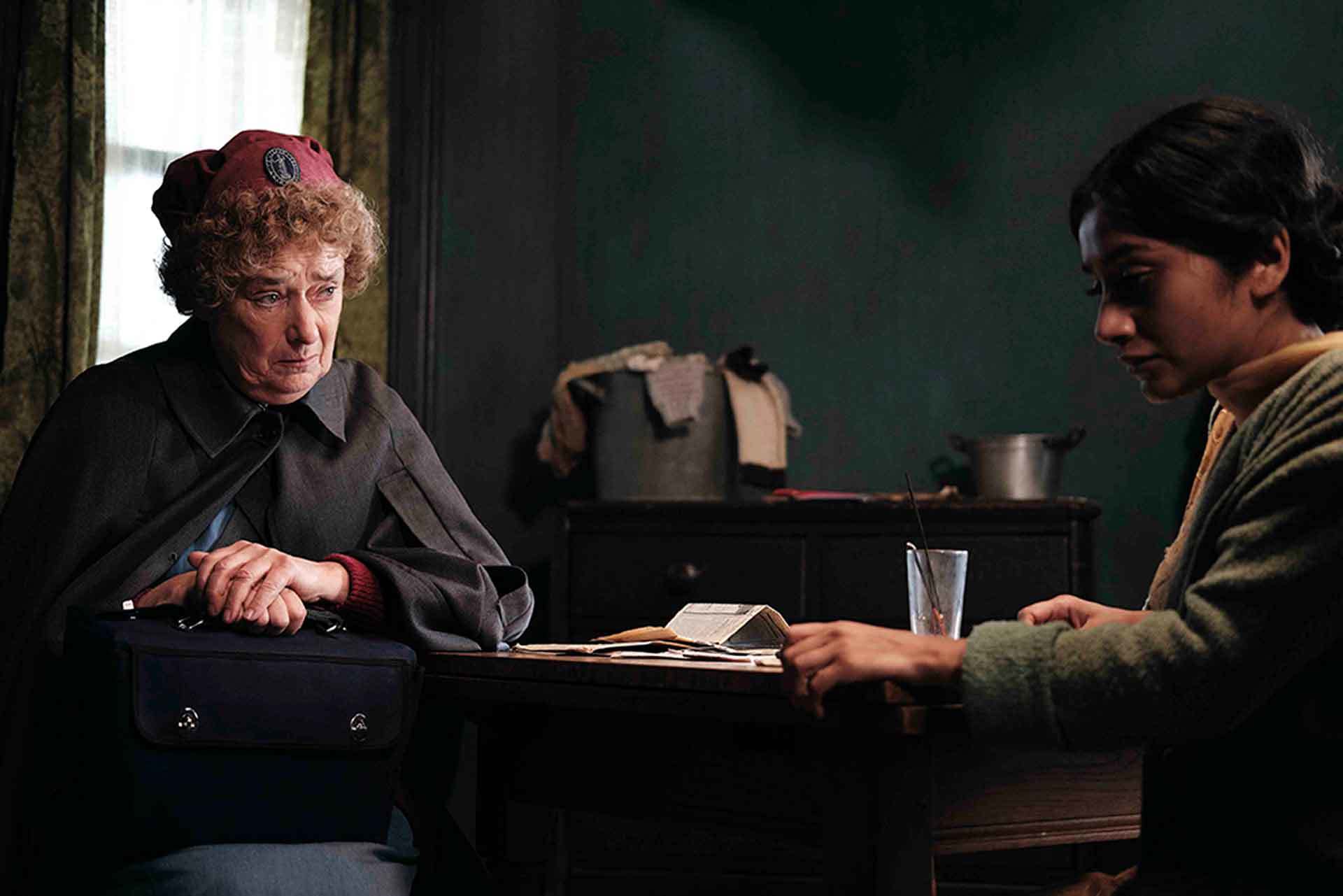
I know I’ve mentioned it before, but I’ve always been drawn to pregnancy and birth, from the time I was a young child. I wavered between studying veterinary medicine or nursing when I was in college, and ultimately decided that I liked the human connection of nursing. Once I learned about midwifery, and its philosophy of care, I was hooked.
You can read more about the midwifery philosophy of care here, but I’d really like to focus on two points that were beautifully illustrated by Nurse Phyllis Crane this week on Call the Midwife. “We believe that every person has a right to health care that respects human dignity, individuality, and diversity among groups” and “self-determination and active participation in health care decisions.” Phyllis demonstrated this partnership of shared decision-making in her care with Farzina Mohammed.
Midwifery focuses on empowering people to become active participants in their health care. Phyllis could see that Farzina was ashamed of what was going on with her body, and also could tell that Farzina didn’t understand it. With kindness and compassion, Phyllis established a trusting rapport. She told Farzina that what was happening was not her fault, that it was a medical condition. Phyllis was patient, kind, and professional. Farzina was able to open up about the loss of her baby girl, and the subsequent health problems she had been facing since then. Phyllis knew that Farzina’s condition required a physician’s help, however, in order to make Farzina comfortable with an exam, she offers to do the exam herself, and dictate her findings to Dr. Turner.
I have been in many situations throughout my midwifery career where people didn’t realize that they are in control of their health care. They are able to decline an exam or treatment, or ask more questions about it and why it is recommended. We, as providers, have the duty to review risks and benefits of all procedures, offer any reasonable alternatives, and allow the individual to choose what is best for them. If I feel very strongly about a recommended course of action, and I’ve thoroughly informed the patient, it is still their right to decline. That’s why it is called “informed consent or refusal.” I loved how Phyllis was able to showcase the midwifery philosophy of care throughout this episode. She didn’t push Farzina to come to the hospital and be examined by Dr. Turner himself, because she knew that would be traumatizing for Farzina. She met Farzina where she was at (both literally in her home, as well as on an emotional level, taking into account what would make Farzina most comfortable), which allowed her to get the safe and respectful care she deserved.
Phyllis not only treated Farzina with respectful, individualized care, but she also took the time to inform her of what was going on in her body and why. She was able to remove the shame and stigma surrounding Farzina’s condition, and get her the help and healing she needed. Many people can be unaware of normal body part appearance or function, and therefore, they may not realize what is happening if something is wrong. I work hard to educate people about their bodies and its functions when the occasion arises; I love seeing adolescents in the office for this reason! I’ve been known to get out a mirror so someone can see their own vulva, vaginal opening, or even cervix. While we are on that topic, using the correct terminology for our bodies is not vulgar—it’s essential.
Watching this week’s episode made me feel so proud to be a part of this amazing profession. With 2020 being The Year of the Nurse and Midwife, it just seemed fitting to have this visual reminder of what our care can mean to someone. Midwifing through a pandemic right now is stressful to say the least. I walk into work unsure of what to expect, but I secure my scrub cap and face mask, review the current protocols, and get to work. I worry every day about my patients who might be skipping their office visits because they are afraid to come in, or for the woman whose partner is symptomatic, so they have to miss the birth of their child. I’m afraid I might bring the virus home to my family. I pray every day that the vigorous protocol of undressing and washing and bleaching that I go through every time I get home from work is enough.
This can be a frightening time to be a health care worker, but we also have the ability to be a beacon of calmness and strength for our patients. Through the respectful and trusting relationships we have developed with our patients and their families, we will help get them through this time. We will help them welcome their babies, and celebrate the joyous occasion of birth with them, even if it’s behind an N95 mask, full face shield, and gown.
Get Another Take: Recommended Call the Midwife Recaps
From Thirteen.org | The British Tele Dish
From WTTW Chicago | The Playlist Blog
From NPT Nashville | The Vanderbilt University School of Nursing Recap
From WETA Washington | The Tele Visions Blog
From WGBH Boston | Watch Drama After Dark or Read the weekly recap